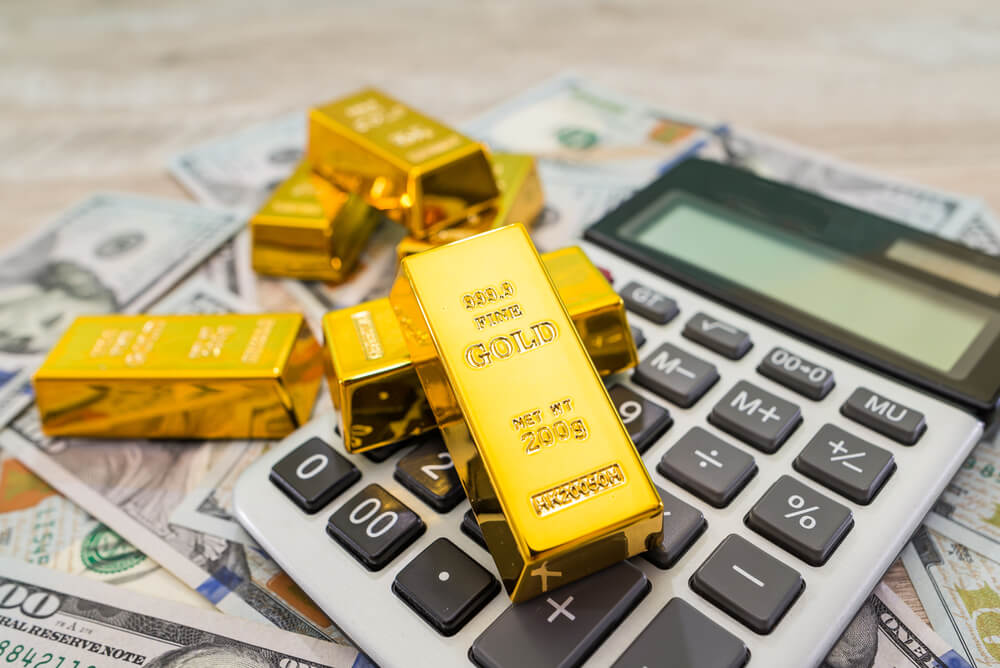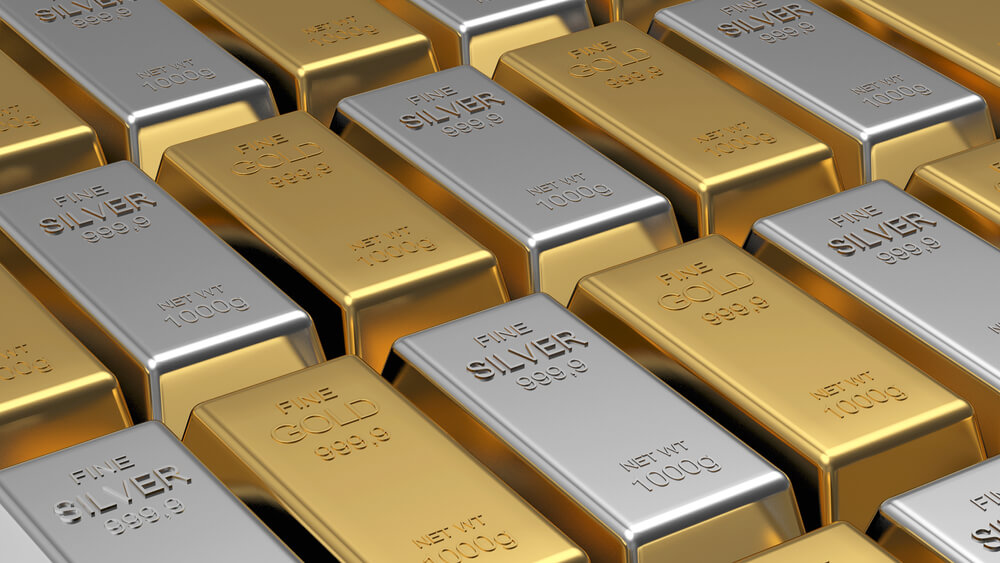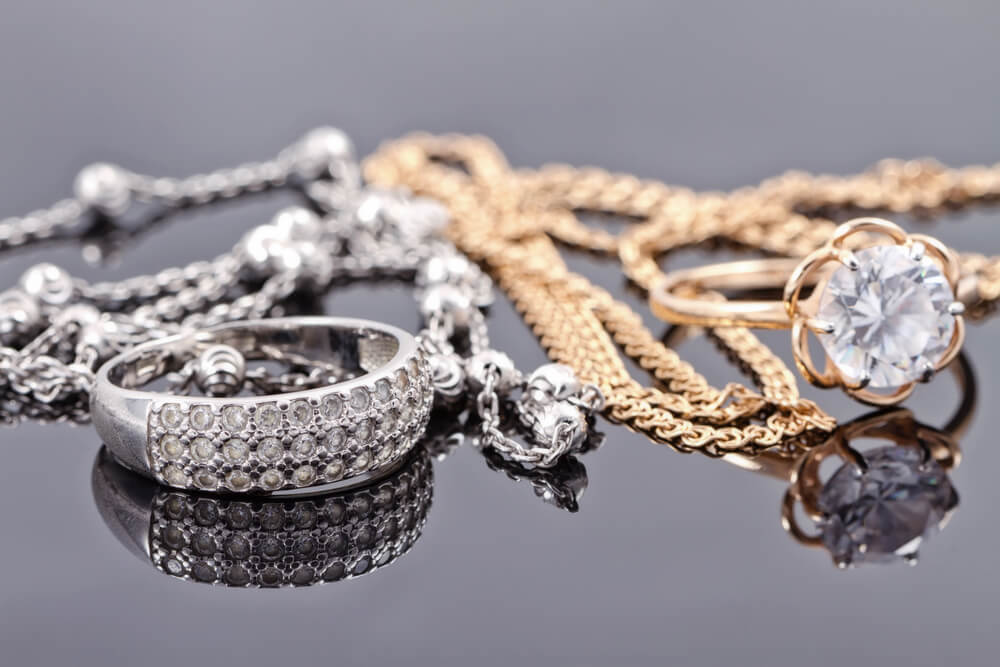
How to Sell Gold and Silver – A 4-Step Guide
Buying gold or silver is not that difficult. There are innumerable ways to procure precious metals online and offline. If you’re looking to sell gold or sell silver, however, the tables do turn. After all, selling an item is not as straightforward as being in a buyer’s shoes.
Some would argue that you can always find a jeweler who would readily buy your precious jewelry. But that’s a route so easy; it shows in the quotes you get for your gold or jewelry items. And if you did some looking around, you will realize the jeweler is offering you less money for what your gold or silver articles are worth.

Selling gold or silver through other channels is not as quick as how the process gets wrapped up at a jeweler’s place. But it will also not take you weeks or months, especially since you’re dealing with gold. Finalizing the transaction in a few days or even hours is plausible.
However, the challenge lies in getting the correct prices for your precious belongings. Potential buyers would try to beat you on the price or buy your precious metals for the lowest price possible. You owe it to yourself to not bow down to market dynamics and solicit the best prices for your precious metals.
And to make that happen, you must know a lot more than gold is a valuable metal, and jewelers buy back gold and provide cash in return. In this article, we’ll cover the following to expand your knowledge horizon:
- Learning more about the kind of gold or silver you have for sale
- Knowing your potential buyers and what they bring to the table
- Executing the sale or picking your buyers based on your gold/silver articles
- Getting paid for the transactions
If you thought selling gold or silver was a lot simpler than selling your other possessions, you’re right. But if you thought people would fall in a beeline to buy your precious metals for the price you quote, you are probably wrong. Read on to get enlightened.
Table of Contents
Know Your Precious Metals
Gold and silver are discreet, non-descript, and anything but eye-catching in their natural forms. When on the consumer market, however, they take up different avatars. The following are some of the more common forms or shapes in which you’ll find gold being traded on the market:
Coins and Bars
Gold coins and silver coins are arguably the purest forms of the respective metals. A gold coin or bar is usually 24 karats or real gold. And to help with the identification, the purity, weight, and serial number will be stamped on the coins or bullion bars. Because they are the purest form of gold or silver, they are easier to sell for a reasonable price.
Coins usually have a lot more intricate design but may not offer any information relating to their composition. The American Eagle coin, for instance, features the Statue of Liberty and the Bald Eagle. The coin doesn’t speak much about its metal content. Along with American Buffalo and various other coins, it serves as bullion coins. Both come in gold and silver and are worth their melt values, at the least.
Rare Coins are a Lot More Valuable
Any gold or silver coin is considered rare if it has historical significance, is scarce, and is always in demand. As a result, such rare coins are worth a lot more than their melt values. Also, rare coins sell a lot more quickly due to their massive demand. You can pick and choose your buyers.
Some of the gold and silver coins drooled upon by coin collectors include the:
- American Eagle
- Canadian Gold/Silver Maple Leaf
- Krugerrand
- Vienna Philharmonic
- Australian Gold Nugget/ Australian Silver Kangaroo, etc.
For the complete list of most valuable gold coins, click here. Here is another article that discusses the purest gold coins in great detail.
If you own any of these coins, you’d likely become several hundred thousand dollars rich by selling them to the right buyer. And even if the silver coins and gold coins you hold are not among the ones mentioned in the above list or linked write-ups, you could still fetch more than the coin’s melt or face value if they’ve got some collector value. The coin’s age and condition would also determine their final prices.
Therefore, learning more about your gold coins or silver coins before selling them is crucial. If you have gold or silver coins but don’t know much about them, do some research online or take them to the nearest jeweler for an inspection.
Gold bullion or silver bullion bars do not have as much historical or collectible value as coins. They, therefore, usually go for their melt value or the current spot price for the respective metals.
Jewelry
Let’s get this out right away—you will not be able to recover the cost price of your gold jewelry. In other words, your jewelry’s selling price will not necessarily reflect its retail price.
Unlike gold and silver coins, jewelry is not considered investible because ornate gold usually has a mixed composition. 22K and 18K gold jewelry, for instance, are not entirely gold. Also, the price paid for the jewelry’s design work amounts to naught in the buyer’s eyes or doesn’t reflect its buyback price. The only thing that interests buyers is the metal content.
People do not buy jewelry to safeguard their wealth or protect against inflation or currency devaluation. They buy ornaments to wear and derive pleasure from it, eventually passing it down to their children. Only those who know very little about gold jewelry buy them from an investment perspective.
If you have gold jewelry and are not desperate for cash, it’s recommended you do not sell them since you’re bound to incur a loss on the transaction. With silver jewelry, the loss margin would be narrower since there’s a lot more silver in a silver jewel than gold in a decked piece of gold.
The presence of other metals in silver jewelry may not be that significant since the precious metal isn’t as malleable as gold. That said, since silver is not too rigid either, it’s pretty standard to see other metals such as copper and nickel alloyed with silver in smaller quantities.
The Disparities Between Jewelry and Bullion
Gold coins would pretty much always fetch a lot more money than gold jewelry in the resale market, even if you paid a higher price for the latter or both have the same gold content.
Jewelry would cost more because it’s a lot more complex to make or requires skilled artisans at work. On the other hand, gold coins are usually machine-pressed and do not require much time and effort to produce.
As mentioned earlier, the market values the gold or silver content of a coin or bullion bar more than the skilled work gone into a gold or silver jewelry design.
Luxury Jewelry Doesn’t Depreciate as Much
The resale value hit may not be as significant with luxury gold or silver pieces. Some may even retain their value or appreciate based on the rarity of the work and the embellishments they carry.
Tiffany diamonds, for example, are among the most clear-cut and inspected stones in the world. Gold jewelry studded with them will remain relatively stable or may even go up in price based on the rarity of the piece and the buyer’s demand for it.
Read more: What are Gold Mining Stocks?
Accessories
After coins and jewelry, the third most common retail avatar gold and silver take, particularly gold, is fashion accessories—watches, pens, glasses, etc. These items are usually entirely or partly gold. For instance, a wristwatch could be wholly made of gold (except for the crystal), or only its strap and/or dial could be yellow metal. Silver is not as commonly used in fashion items, by the way.
You may also find gold and silver in various electronics. The laptops, smartphones, gaming consoles, and other electronic items you use have some amount of gold, silver, platinum, palladium, and other precious metals. However, do not go about breaking those electronics apart, as the gold and silver content will undoubtedly not be worth the effort and time put into extracting them.
Zeroing in on the Right Buyers
As mentioned earlier, there’s no shortage of potential gold and silver buyers. You can sell your precious metals at a local coin shop, jeweler, or pawn shop. You could even go online and sell online your gold and silver articles to businesses or individuals. But who you sell your precious metals to is up to you. Here are some of your legitimate options:
Institutional Buyers
When selling gold and silver, it’s always recommended to deal with a buyer you know beforehand or find trustworthy. Most often, that buyer is a business or company. Opt for jewelers or buyers with verifiable business premises and who are licensed to sell and buy gold, silver, and other precious metals or commodities.
Jewelers
Jewelers will be able to evaluate your precious metal coins, bullion bars, jewelry, etc., and offer a fairly reasonable price. They may not provide the best price for your items, but the level of convenience and security they provide is quite reassuring for most sellers. For your gold coins, however, they may not be ideal. (More on that later).
Precious Metals Dealers
If you’ve got rare gold coins to sell, look at buyers who’d appreciate the coins beyond their numismatic or melt values. Your jeweler or other traditional gold and silver coins buyers would not be the right buyers.
Precious metals dealers could be a better fit or suitable selling option. These dealers usually have in-house experts who can accurately assess the value of your gold and silver coins and provide you with the best payouts.
Auction Houses
An auction house doesn’t come to most people’s minds when selling gold or silver, particularly those who would like to sell their gold quickly. An auction is a long-drawn process and shall suit only those willing to wait to find the right buyer and get the best price.
There are no real limitations on what you could or could not sell through an auction. The auction house usually takes the call. Not to mention, the rarer the piece, the higher the chances of selling it through the bidding process and fetching a fair price or the highest price for it.
Pawn Shop
A pawn shop is an option, but let it be your very last resort or when you’re completely broke and have nowhere else to go.
Selling the Gold and Silver

After learning about the kind of gold and silver you have on hand and your potential buyers or the channels through which you could access them, the selling phase is where you only need to execute on all the things learned above.
If you believe or know the gold and silver articles in your possession are worth a lot more than it seems, look for buyers who know what your precious metals are genuinely worth. In other words, picking the right kind of buyer is imperative to bag the best price for your gold and silver items.
Selling Gold or Silver to Traditional Buyers
Whether you want to sell your gold bars or coins, silver bars or bullion coins, start with your jewelers, local coin shops, or valuable metal dealers. They help you assess your gold or silver articles and offer you estimates that you could either accept or use as a base price for negotiating with buyers you meet elsewhere—for instance, a coin show.
Coin shows are great avenues to meet like-minded individuals who collect, buy and sell gold or silver coins. At these events, you’re likely to find ideal buyers for your precious items.
If you’re selling gold jewelry, try selling it to the jeweler who sold it to you since their buyback prices would likely beat the estimates quoted by other jewelry shops or dealers. They would undoubtedly outdo pawn shops that try to procure the piece for the lowest possible price. Just have the receipt handy (as always).
Rare Gold/Silver Coins Deserve the Right Buyers
If you know you’ve got a treasure in your hand and are not in a hurry to sell it off, stage the piece at an auction. Auctioning off your rare gold or silver may be a long-drawn process, but it’s usually worth the wait and effort. The article may not sell in the first round, but it eventually would.
The auctioneer or the auction house would charge you a fee for their services, but that would be nominal compared to the amount you could sell your rare, prized metal pieces for. You may also sell the item at an online auction.
To ensure the winning bidder doesn’t bag the item for a low price or a sum you’re not comfortable selling the good for, set a price you’d be happy with as a starting point. The auction house or site would also help you ascertain the right starting bid price.
Online is Convenient, but Tread with Caution
Do not post ads for your gold and silver bullion or jewelry on sites like Craigslist or any place where there’s no proper buyer/seller protection. Selling precious metals to some random person you connected with on the Internet is a big no because there’s just too much risk involved.
If you’re selling the gold to a friend or relative, that works. But since the likelihood of that happening is minuscule to zero, the option pretty much doesn’t exist. After all, you do not think of asking your friend, family member, or colleague about their valuable metal possessions when the thought of buying or investing in gold or silver comes to your mind.
If you’re going the online route, always choose an e-commerce platform or a marketplace you can trust. Amazon and eBay are good places to begin since they provide seller protection. But you can always look at sites dedicated to precious metals trading. Traditional auctioneers and even financial institutions may give options to auction your gold or silver online. You must pay a fee to the enabling website and the shipping costs.
Because the transaction will be purely online and there’s the website watching your back, selling gold online to a random stranger through them becomes a lot more palatable all of a sudden.
Ensure Your Online Listing is Clear and Complete
Selling gold and silver online is akin to selling them through traditional channels. With more reputable dealers taking their precious metals business online and the wide variety of payment options at your disposal, there was never a better and safer time to sell gold or silver electronically.
Just make sure your product listing is detailed and complete. For example, if you want to sell silver bullion, mention the item’s weight or how much gold it packs, its condition, the date of purchase, have all the documentation ready, etc. When you have all information pertinent to the item ready, you’d be more confident with your interactions with potential buyers. The buyer would also find you more trustworthy.
Getting Paid
Receiving money for the gold or silver sold is one of the important factors to a wholesome selling experience. Based on who you sell your gold or silver articles too, the volume of the transaction, and how quickly you want to get paid, your payment mode choices may vary or even dwindle.
Jewellers, for instance, provide quick payment, but they also buy your precious metal belongings for a relatively lower price. If you don’t mind a delay in payment, they could send you the money online or bank wire you the funds too. Based on the date of purchase, the money will be in your bank account the same or very next day, or it may take a few days if banks are not working for the next few days.
If the total worth of your gold or silver items is a lot more money, the seller would pretty much always make you an online payment. The measure is both for the safety of the funds and also the fact that the buyer may not have all that cash readily available.
If you’d like to get paid through a certain mode, consider the above aspects.
Read more: Can You Buy Gold With Bitcoin?
Conclusion
The process of selling any high-ticket item must not be carried out in haste—particularly when there’s equal possibilities of landing an excellent deal or ending up disappointed with the sell.
Gold, as a commodity, is not finnicky. It’s quite stable with its prices. But when the yellow metal assumes different shapes and forms, the retail market or current spot price ceases to be the best price. A rare gold coin and a gold bullion may not carry the same price tags even if the gold content is identical in them. At times, coins could sell for multiple times the price of gold bullion even if the latter has a higher melt value.
Selling silver is a similar story, but not as multi-pronged as gold since it’s not as valuable or doesn’t command the high prices that gold attracts. The metal is also not commonly used in jewelry. And when it does get added to jewelry, it gets alloyed with gold to give a whitish hue to gold, giving platinum a run for its money.
Regardless of whether you’re selling gold, silver, or any other valuable metal, make sure you’re not coming out of the deal with a bad taste in your mouth—especially not after having read this article in its entirety. A bad sales experience could mean either selling your precious metals for a price lower than what you deserve or getting mugged when selling your gold or silver to some random stranger in the back alleys or any clandestine location.


